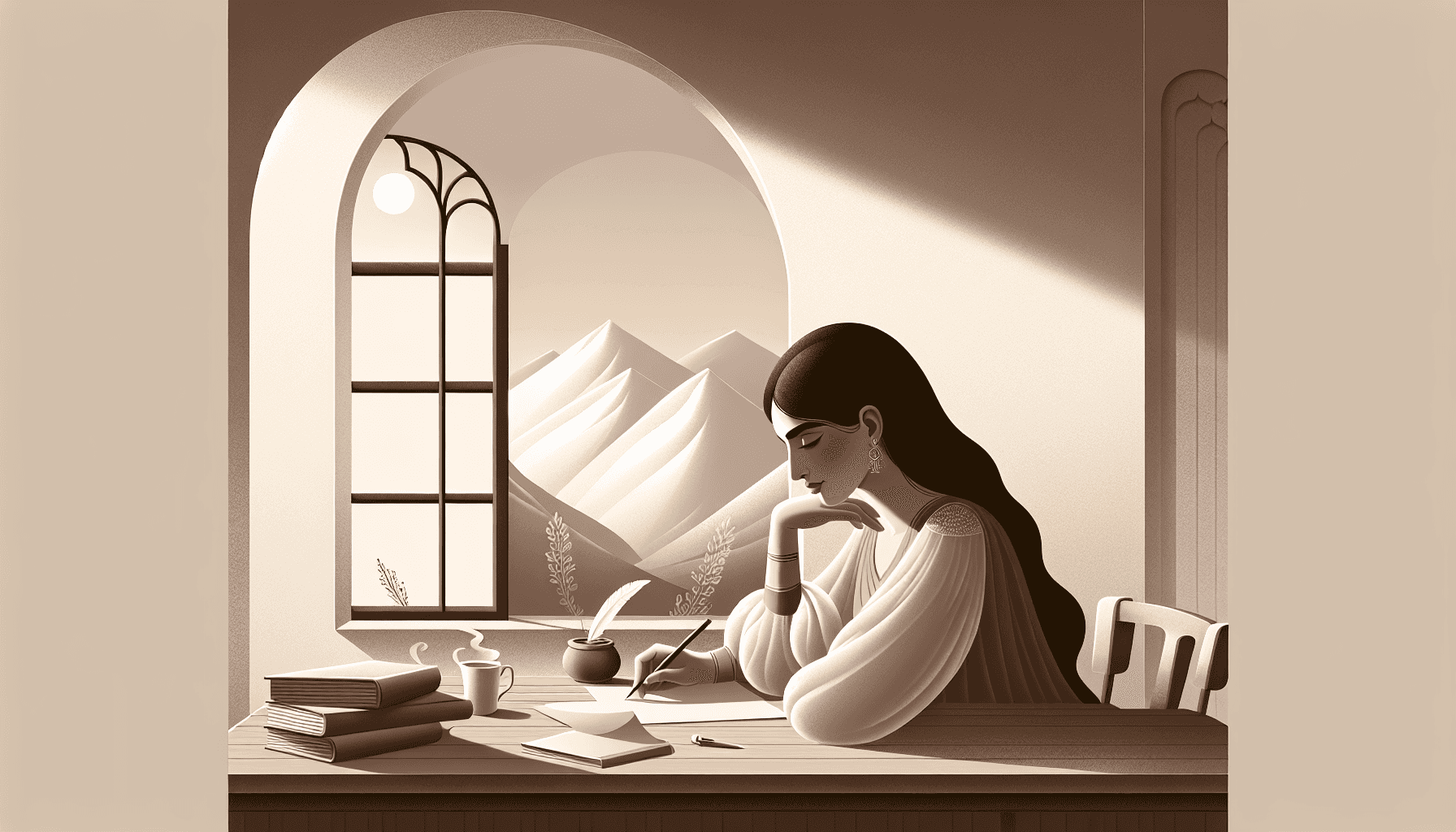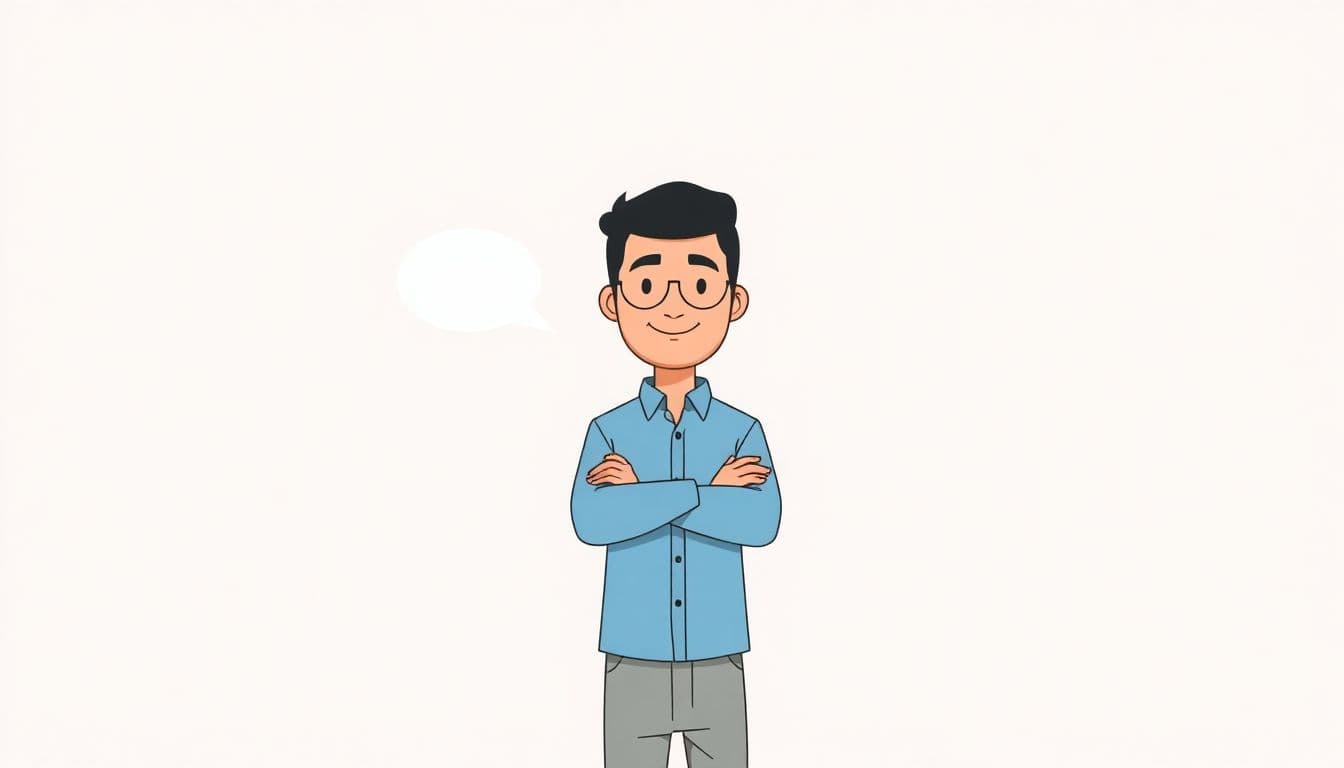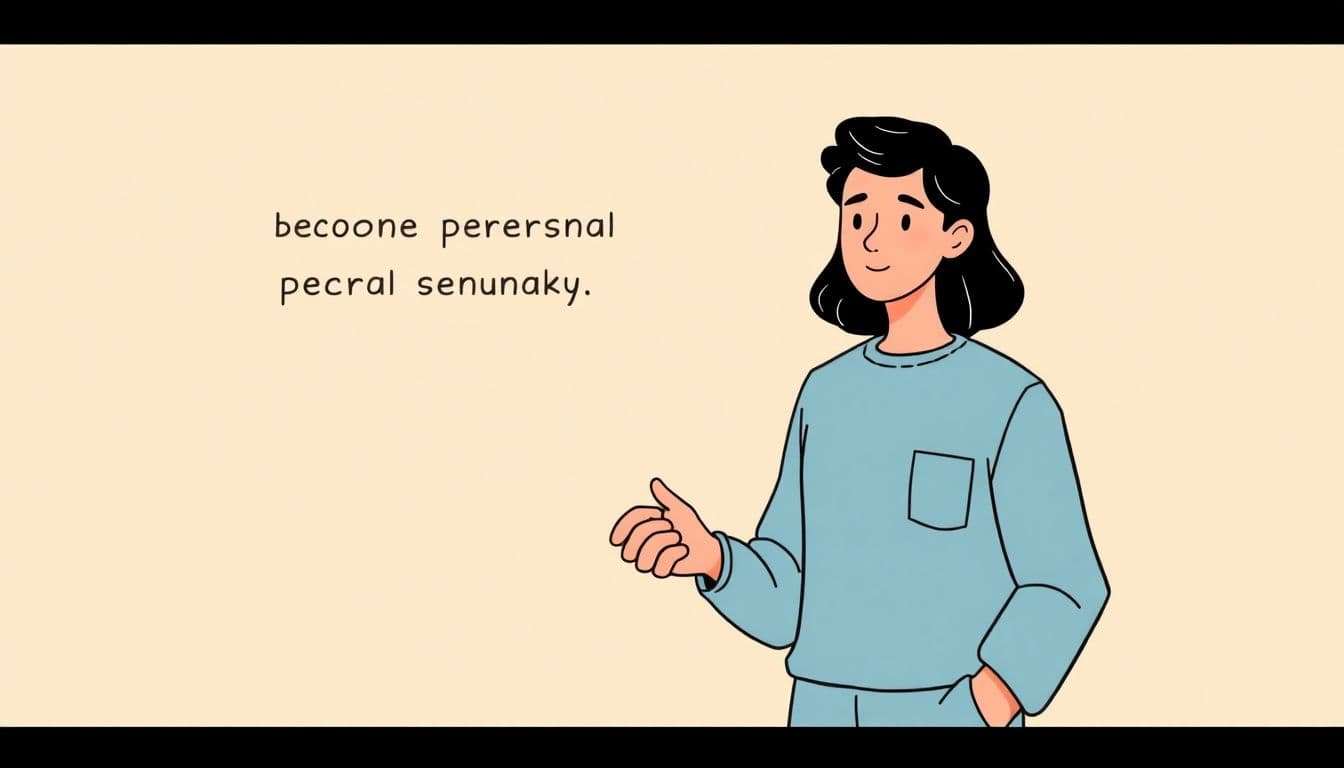Table of Contents
Writing a book can feel like climbing a mountain, right? You’ve got the idea, but when it comes to crafting characters or spinning an intricate plot, the blank page can be intimidating. It’s totally normal to hit a wall or feel lost in the creative process.
But what if I told you that ChatGPT could be your helpful co-pilot on this literary journey? Stick with me, and I’ll share effective prompts that will unlock your creativity, generate captivating plots, and even help you develop engaging dialogue.
We’ll explore the best ways to use ChatGPT, from building characters to structuring your book and overcoming those pesky writer’s blocks. Let’s dive into making your writing process smoother and way more fun!
Key Takeaways
- ChatGPT can boost your writing by helping you generate ideas, develop characters, and overcome writer’s block.
- Use specific prompts for different genres and themes to get targeted inspiration.
- Character creation is easier with ChatGPT; you can brainstorm traits, backstories, and relationships.
- For plot ideas, start with a basic premise and ask for twists and perspectives to enhance your story.
- To create dynamic dialogue, prompt ChatGPT for conversations that reflect your characters’ emotions and contexts.
- Structure your book effectively by asking ChatGPT for outlines and identifying potential pitfalls.
- ChatGPT can help with editing by catching errors and suggesting improvements for flow and clarity.
- Combat writer’s block by using prompts to explore new plot directions and endings.
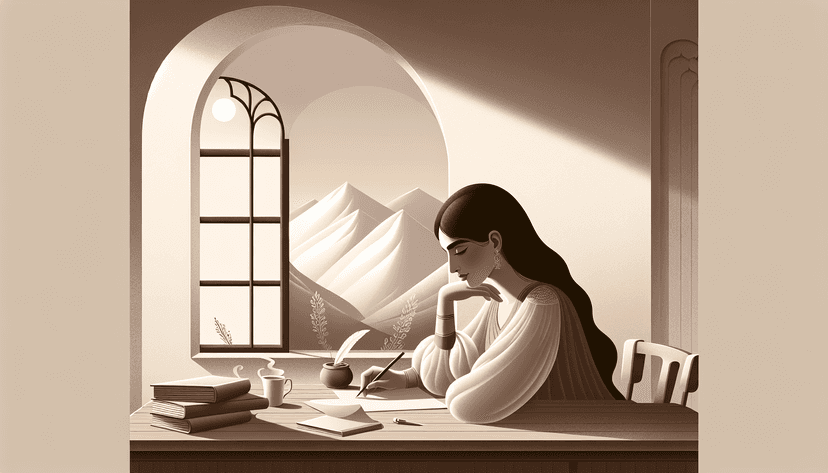
Effective ChatGPT Prompts for Writing a Book
If you’re looking to write a book, ChatGPT can be an excellent partner.
Using the right prompts can help generate ideas, develop characters, and refine your narrative.
It’s like having a brainstorming buddy who never runs out of energy or ideas.
So, let’s explore how you can harness ChatGPT to elevate your writing game.
Types of Book Writing Prompts
Book writing prompts can fall into various categories, each serving a unique purpose.
Some prompts focus on specific genres, such as fantasy or romance, while others might center on themes like identity or loss.
You can also find prompts that encourage specific plot structures, character arcs, or emotional journeys.
For instance, if you’re writing a dystopian novel, you could use a prompt like: “Imagine a world where water is the most valuable resource.”
You can discover more genre-specific ideas by checking out dystopian plot generators for inspiration.
Another effective strategy is to create specific “what if” prompts, like: “What if a scientist accidentally opens a portal to another dimension?”
These types of prompts can kickstart your creative process and generate unique storylines.
Using ChatGPT to Create Characters
Creating memorable characters can make or break your book.
With ChatGPT, you can easily brainstorm character traits, backstories, and motivations.
Start by asking ChatGPT questions like, “What are some interesting traits for a rebellious teenager?”
From there, you can dive deeper by prompting it to generate a backstory: “What event shaped this character’s view of the world?”
For example, you might discover that your teenager has a secret love for poetry, adding depth to their rebellious exterior.
Another useful tip is to ask ChatGPT to create character relationships: “What is the relationship between the rebellious teenager and their strict parent?”
This can lead to dynamic interactions that enhance your storytelling.
Generating Plot Ideas with ChatGPT
When it comes to plots, having a solid foundation is key for any author.
ChatGPT can help you brainstorm compelling plot twists, conflicts, and resolutions.
Start by giving ChatGPT a basic premise, like: “A detective in a small town uncovers a dark secret.”
Then ask it to build on that by prompting for potential plot developments: “What unexpected twist could occur three chapters in?”
This can give you a fresh perspective and lead to exciting developments you might not have considered.
You can also request varying perspectives on your plot ideas by asking, “From whose point of view should the story be told?”
Trying out different character lenses can reveal new layers to your plot, making it more engaging.
If you want more specific ideas, consider checking out horror story plot ideas for examples that can spark your creativity.

Building Dialogue with ChatGPT Prompts
Writing natural dialogue can be tricky, but ChatGPT makes it easier.
You can start with prompts like, “Generate a conversation between two friends discussing their future plans.”
This can give you a framework to build on, allowing you to create realistic back-and-forth exchanges.
To enhance your dialogue, consider specifying the emotional tone: “Write a heated argument between a parent and a teenager.”
Asking for different styles also helps, such as: “How would a detective speak to a suspect?”
This can lead to unique dialogue that fits your character’s personality and situation.
Another effective method is to analyze the dialogue you’ve already written by asking ChatGPT, “What could make this conversation more engaging?”
This feedback can provide fresh ideas and improve the flow of your story.
Don’t forget to explore outside sources for inspiration too; checking out how to format dialogue can really help you nail the presentation.
Structuring Your Book Using ChatGPT
Structuring your book is crucial for pacing and coherence.
ChatGPT can assist in outlining key chapters and important plot points.
Start with a simple prompt: “Outline a three-act structure for a fantasy novel.”
This gives you a roadmap to follow while adding layers to your story.
You can then refine your structure by asking for details: “What major events should happen in Act 1?”
As you build your outline, consider the climax of your story and how it flows into the resolution.
Another useful tactic is to ask ChatGPT, “What are common pitfalls in book structure?”
This can help you avoid clichés and ensure originality.
If you’re in need of more specific recommendations, don’t hesitate to check out resources on how to create an interactive ebook for innovative structuring ideas.
Editing and Revising with ChatGPT Assistance
Editing and revising can feel overwhelming, but it’s also essential to producing a polished book.
ChatGPT can serve as a second set of eyes to catch errors and suggest improvements.
Start by having it review a specific section of your writing: “What feedback do you have on this paragraph?”
From there, you can make edits based on its suggestions and ask it to look for common mistakes, like passive voice or repetitive phrases.
You can also inquire about overall flow by prompting, “How can I improve the pacing in this chapter?”
Using ChatGPT as part of your editing process can boost your confidence and help you catch issues you might overlook.
If you’re looking for deeper insights into effective editing practices, exploring guides on self-publishing without an agent might provide some useful tips.
Overcoming Writer’s Block with ChatGPT Prompts
Writer’s block can be incredibly frustrating, but ChatGPT can help you break through it.
To start, you could use prompts like: “Provide me with ten random plot ideas that I can choose from.”
Having options can rekindle your interest in writing and lead to new directions for your story.
You can also challenge the AI with specific scenarios: “What if my main character gets trapped in a storm?”
This can spark creativity and get your imagination flowing again.
Additionally, ask for potential endings: “What are five different endings I could consider for my story?”
Shifting your focus from the middle to the end can sometimes help you navigate through blocks.
As you work through these prompts, don’t forget to take breaks and let the story simmer.
For more creative boosts, you might want to check out seasonal writing prompts that can provide timely inspiration.
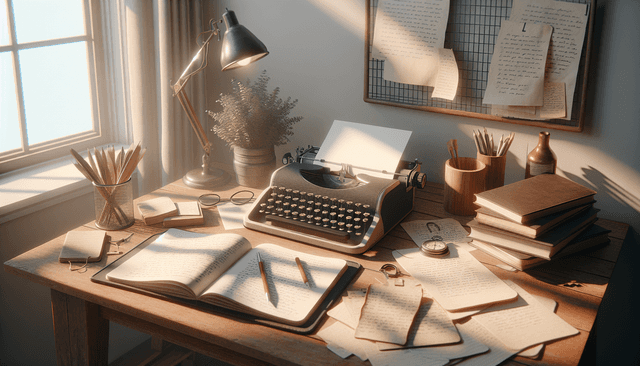
Tips for Maximizing ChatGPT’s Potential for Book Writing
To make the most of ChatGPT for your writing, clarity is key.
Start with specific prompts that define what you need.
Instead of asking, “What should I write about?” try “Give me three unique plot ideas for a mystery novel set in a small town.”
Using targeted language helps ChatGPT provide more relevant responses.
Experiment with different angles or aspects of your writing.
For instance, if you’re developing a character, ask: “What flaws could make my hero more relatable?”
This not only sharpens your focus but also leads to richer conversations with the AI.
Another tip is to utilize ChatGPT as your writing coach.
Ask for feedback on your style or pacing, such as, “How can I make this section more engaging?”
Remember to iterate on the responses you get.
If something doesn’t quite hit the mark, ask for clarifications or alternatives.
Keep an open dialogue with the AI; the more you engage, the better the output.
And finally, don’t hesitate to give ChatGPT a nudge.
If it misses the point, clarify your needs further.
Using questions that lead to elaboration can kickstart better ideas.
Conclusion and Next Steps
Writing a book is a journey, and ChatGPT can be a great companion along the way.
From crafting characters and brainstorming plots to fine-tuning dialogue, the possibilities are endless.
Don’t forget to explore and play with your prompts to discover new insights.
As you wrap up your writing session, set aside some time to reflect on what you’ve created.
Be sure to save your interactions with ChatGPT for future reference, as these can become a valuable resource.
Consider joining writing communities or forums where you can share your experiences and learn from others.
Ultimately, the goal is to enhance your writing process.
Use ChatGPT as a tool to spark your creativity and push through challenges.
So, roll up your sleeves and start writing, because your book deserves to be told!
FAQs
You can use character, plot, dialogue, and scene prompts. Additionally, you can ask for thematic ideas and story structures to enhance your storytelling process.
ChatGPT can generate unique character profiles, including traits, backstories, and motivations, helping you develop multi-dimensional characters that enrich your narrative.
Yes, ChatGPT can provide fresh ideas, prompt suggestions, and alternative directions for your story, making it easier to overcome creative blocks and reignite your writing process.
Be specific in your prompts, ask for multiple suggestions, iterate on ideas, and engage in a dialogue with ChatGPT to refine your writing and enhance creativity.
